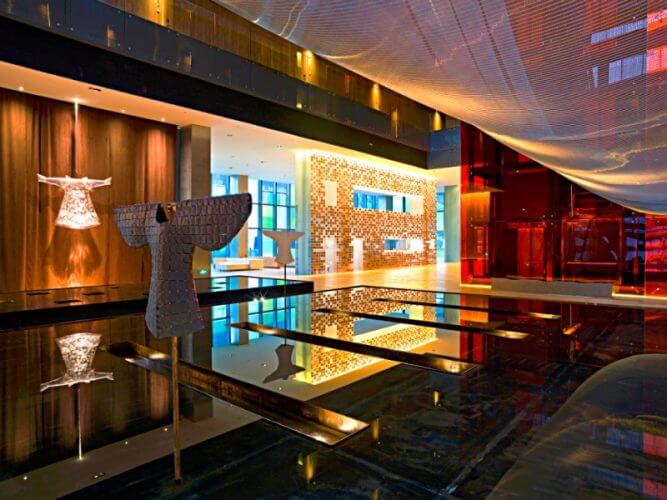The hotel and hospitality industries have been going to great lengths to ensure an unparalleled experience for people. In fact, research over the past 60 years has created a field where hospitality can be trained and taught, turning it into an art form. But to begin this research, one vital question was asked: What exactly is hospitality? It’s a service of course, but how can it be improved? What does effective hospitality mean, and how can it be re-imagined?
In many board rooms for many years, hospitality was thought to be something tangible. Enough soap in the hotel room. Twenty-four-hour access to a concierge. A television with access to over 200 channels, or an on-site restaurant. Evidence for hospitality has been around since biblical times. According to Jacques Levy-Bonvin, there were even thermal baths designed for the weary by the Greeks.
Hospitality careers have bloomed over the past year in part thanks to travel and tourism, a continuing booming industry despite political climates. With the advent of social media and a trend towards minimalism, along with the pursuit of passion, the traveling and tourism industry is booming. It’s estimated that by 2026, 1 out of 9 jobs will be related to travel and tourism. For the record, that’s over 390 million jobs. And with a rise in AirBnB, hotels and high-end serviced apartments like Clarendon are making sure to heavily asses what needs to be improved to keep their business on top and people happy.
But as the hotel business bloomed from something that was only limited to the rich into a multi-billion-dollar industry, new ideas began to emerge. How can something that has been so intimately tied to civilization continue to be improved thousands of years later? The answer: through human interaction and assessment.
With careers in hospitality comes the study of the subject. Years of research have gone into answering the question of hospitality. Naturally, artificial intelligence has entered the market with the aim of providing smoother, smarter, and more personalized experiences. However, even with the rise of convenient technology, customers still crave a human and authentic experience.
This meant the rise of schools and academies dedicated to the fine art of hospitality. Schools have now carefully designed assessments that predict a student’s ability to be detail oriented. Graduates now come equipped with service as a natural part of their mentality.
Through this continued research and experience, what has ranked as important time and time again in tourism is the art of hospitality. And if anyone wants the slice of the tourism pie, such a business has to understand one thing: hospitality isn’t a place, a fascinating location, or a product. Hospitality is a feeling.
This feeling that attracts customers who want extravagant experiences through service is the one feature hotels still have over tourism and travel-related hospitality. It’s the service provided from the dedicated care and craft of one human being to another. It’s more than the detail in presentation. It’s the complete attentiveness to a guest’s need, even anticipation of it. It’s not a hot location that provides this experience; it’s people.
Excelling in the booming industry of hospitality means excelling in the art and study of human potential. It’s digging into the vein of the natural tendency for one human being to care for another, providing ultimate, memorable experiences. The years ahead should be very promising for those looking to travel.

